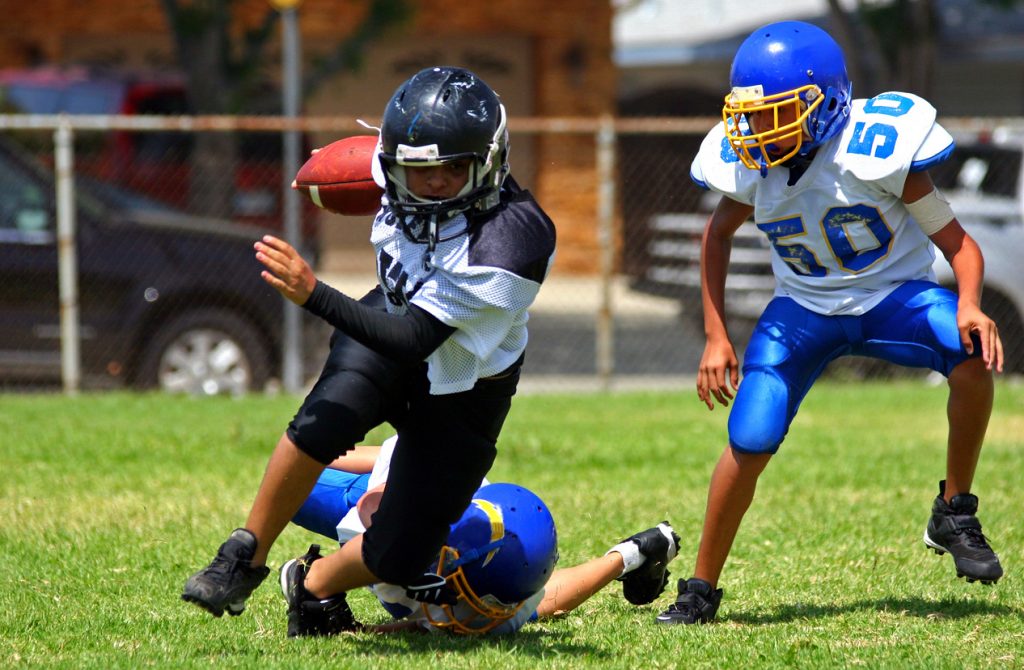Parents, coaches, and athletes know that playing football can put high schoolers at risk for serious injury from concussions. But other school sports, including basketball, soccer, lacrosse, and cheerleading, pose concussion risks as well. Luckily, there are simple steps to take to help young athletes recover from and, more importantly, prevent dangerous concussions.
Concussions are brain injuries that result when a blow to the head or the body jolts the brain into the inside of the skull hard and fast enough to disrupt normal brain function. As a result, brain cells are stretched or injured, throwing brain chemicals out of whack.
Symptoms and When to See a Doctor
Concussions can’t be seen on CT scans or X-rays, but a variety of symptoms can be a clue that an athlete has sustained an injury. Those symptoms include:
- headache
- dizziness
- nausea and vomiting
- difficulty concentrating in school
- sluggishness or grogginess
- blurry vision
- difficulty sleeping
- moodiness
Any child with these symptoms after a hit or fall should never go back to play the same day. Symptoms may show up or worsen over the next several days before getting better. The athlete should check in with their doctor within a few days of a suspected concussion to discuss treatment and activities.
Symptoms including loss of consciousness, slurred speech, a worsening headache, or unequal pupil size can be signs of a more serious injury and should be treated by a doctor or at an emergency room immediately.
In case of a medical emergency with a child, determine where the nearest accredited, Level I pediatric trauma center is located. St. Louis Children’s Hospital has six pediatric ER locations across the St. Louis and southern Illinois region including St. Louis Children’s Hospital, Children’s Hospital at Memorial Hospital Belleville, Children’s Hospital at Memorial Hospital Shiloh, Children’s Hospital at Missouri Baptist Medical Center, Children’s Hospital at Northwest HealthCare and Children’s Hospital at Progress West Hospital.
Recovery
Everybody’s brain is a little different and will react differently to a concussion. Some kids will take a week to get better. Some take much longer.
Getting plenty of rest to let the brain heal is the most important thing a child can do to recover from a concussion. Limiting screen time, bright lights, and loud noises also can help recovery.
Young athletes should stay on the sidelines until all their symptoms have cleared up. Also, I encourage parents to monitor their child’s symptoms and ask them to be honest about what symptoms they’re experiencing. Children should gradually ease back into their normal activities.
Preventing Concussions
Concussions, like other sports injuries, can often be prevented. While helmets and mouthguards are very important in preventing other injuries, they don’t prevent concussions. Instead, learning skills and correct techniques coupled with proper regulation are key.
For instance, U.S. child soccer programs typically don’t allow younger participants to head balls. When heading is allowed, it’s important for coaches to teach proper technique—the same with football. The Pop Warner Association children’s football and cheerleading league has instituted safety measures, including banning full-speed tackling and certain cheer moves. It also requires coaches to take safety training.
Safety regulations and proper coaching make sports safer for kids, and dealing with concussions less of a headache for parents. For more information on head and neck safety in children’s sports, visit the Centers for Disease Control and Prevention’s HEADS UP to Youth Sports website.






Comments